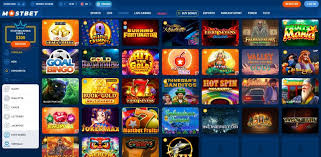History of Online Casinos: Trace the evolution of online casinos from their humble beginnings to the feature-rich platforms of today
The history of online casinos is a fascinating journey that mirrors the rapid advancements in technology and changing social norms around gambling. The concept of gambling over the internet began to take shape in the mid-1990s. As internet access expanded, the potential for online gambling became evident. History of Online Casinos: Trace the evolution of online casinos from their humble beginnings to the feature-rich platforms of today. Mostbet 27 was one of the many platforms that emerged as the digital landscape evolved. Let’s delve into the significant milestones that have shaped the online casino landscape over the years.
The Birth of Online Gambling (1994-1998)
The first online casino launched in 1994, thanks to the introduction of the Free Trade and Processing Zone Act in Antigua and Barbuda. This act allowed companies to apply for licenses to operate online gambling businesses. Microgaming, a software development company, was the pioneer, creating the first fully functional online casino platform. At that time, the layout was simple, with basic graphics and limited game options—primarily just a few variations of blackjack and roulette.
In 1996, the first comprehensive online poker room, Paradise Poker, was opened, allowing players to engage in poker games against one another over the internet. The innovation of real-money gambling online caught on rapidly, and by the late 1990s, dozens of online casinos were in operation, attracting thousands of players worldwide.
The Boom Years (1999-2005)
As technology advanced and internet speeds increased, online casinos began to offer a wider array of games and better graphics. Flash technology allowed for more immersive game experiences, and many casinos started to adopt a more player-friendly approach, including welcome bonuses and loyalty programs to attract and retain players.

In 2003, the introduction of mobile technology marked another significant turning point. Though early mobile casinos were rudimentary, they laid the groundwork for the sophisticated mobile gaming platforms we see today. Players could now gamble on-the-go, broadening the appeal of online casinos.
Regulation and Legislation (2006-2011)
The online gambling industry faced significant challenges during this period, particularly in the United States. In 2006, the U.S. Congress passed the Unlawful Internet Gambling Enforcement Act (UIGEA), which made it illegal for banks and payment processors to facilitate commercial online gambling transactions. Many online casinos pulled out of the U.S. market as a result.
Despite this setback, the online casino market continued to grow in regulated jurisdictions, particularly in Europe. Countries like the UK and Malta began implementing licensing and regulatory measures that ensured player safety and fair play. This led to a trust-based relationship between players and online casinos, encouraging more individuals to engage in online gambling.
The Resurgence and Technological Innovations (2012-2018)
With new regulatory frameworks and a renewed focus on player safety, the online casino industry began to see a resurgence. The introduction of Live Dealer games, which used video streaming technology to bring real-life casino experiences into players’ homes, was a groundbreaking step during this era. It created an engaging atmosphere, allowing players to interact with real dealers and other players in real-time.
Moreover, innovations such as Random Number Generators (RNGs) enhanced game fairness, ensuring that outcomes were truly random. The industry also saw a significant shift towards mobile optimization—casinos began developing dedicated apps and responsive websites that made playing on smartphones and tablets a seamless experience.

Modern Era: The Rise of Cryptocurrency and Virtual Reality (2019-Present)
The most recent developments in online casinos involve integrating cryptocurrencies. Digital currencies like Bitcoin have made online transactions faster, cheaper, and more secure. Many casinos now accept crypto and provide unique bonuses for players who transact using these currencies, further revolutionizing the player experience.
Additionally, the excitement around virtual reality (VR) and augmented reality (AR) is beginning to reshape the online casino landscape. While still in its infancy, the potential for VR casinos to create immersive environments for players is immense, offering experiences that are much closer to being in a physical casino.
The Future of Online Casinos
The future of online casinos appears bright. With advancements in technology leading to enhanced gaming experiences, the industry is likely to continue evolving. The integration of artificial intelligence for personalized gaming experiences and improvements in regulatory frameworks will ensure that the online gambling environment remains safe and engaging for players.
Furthermore, the rise of esports betting and further integration of social gaming suggests that online gambling will continue to diversify, attracting a younger audience and expanding the demographic of players.
Conclusion
The history of online casinos is a compelling story of innovation, regulation, and adaptation. From simple beginnings in the 1990s to today’s advanced platforms filled with features, the journey reflects changing technologies and player expectations. As we look forward to the future, one thing is certain: the online casino industry will continue to expand, offering exciting new opportunities for players around the globe.
Leave a Reply